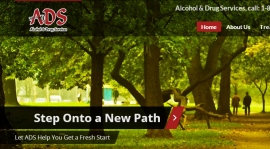 People facing addictive disease cover a wide variety of maturity levels, individual capabilities, and in their level of desire for sober lives. What I mean is that some are further along in their mindset and are really ready to live drug free. They embrace the challenge, and they recognize that some work lies ahead in order to get their life properly sorted out.
People facing addictive disease cover a wide variety of maturity levels, individual capabilities, and in their level of desire for sober lives. What I mean is that some are further along in their mindset and are really ready to live drug free. They embrace the challenge, and they recognize that some work lies ahead in order to get their life properly sorted out.
Others are sometimes only motivated by the present crisis. They do the right thing only long enough to avert the crisis, and then they’re back to old behavior and old attitudes like they didn’t miss a beat. They straighten up just long enough to avoid probation revocation. They may stop using and “make nice” with a loved one as long as it takes to get some money or a favor, and then it’s back to addict behavior.
With opiate addiction, people from all walks of life can develop a problem – from the chronic troublemaker to the person who never gave anyone a hard time. Opiate addiction covers the whole spectrum of humanity and knows no boundaries. I have treated doctors, dentists, and lawyers … grandparents … church members … teachers … and teens. This diverse group of people had one thing in common. That’s right. Addiction.
While long term recovery is available to every person, only some get clean & sober. Why is this? The answer has much to do with whether a person has an innate desire to change, whether they are teachable and open, and sometimes whether their conscience is awake. Addiction, and the unique behavioral traits that often surround it, make people resistant to change. They resist doing the things that lead to stability, sobriety, and success. Like a seriously overweight person who keeps overeating or a stage 4 diabetic who won’t leave the doughnuts and cookies alone.
Addicts can cycle in and out of rehabs, in and out of jobs, and in and out of relationships. They become the drama that disrupts family life. The phone call at 3:00 a.m. that wakes the children. The examples are endless and they all lead to the same destination … which is pain, loss, failure. Or, as they say in NA: jails, institutions, or death.
Each addiction is a journey as is each individual recovery. There are bumps in the road and a multitude of wrong turns. But there is learning. Hopefully, humility develops and the willingness to follow a new path that involves the guidance & support of others who know more. Addiction is a cunning illness. Trying to fight addiction alone is not a smart decision. It has been shown repeatedly that those who make it typically seek help. Treatment is help. Treatment provides the needed support, feedback, and essential tools for repairing one’s life. Opiate addiction is a powerful trap. Make no mistake though. People do recover … and go on to exciting and enriched lives. Do not stay stuck. Reach out for help in your local community.

 Follow
Follow

 When a parent enters treatment for opioid addiction and begins methadone dosing, hopefully that person embraces the recovery process and the resumption of certain responsibilities that may have been neglected during addiction.
When a parent enters treatment for opioid addiction and begins methadone dosing, hopefully that person embraces the recovery process and the resumption of certain responsibilities that may have been neglected during addiction. There are many hundreds of methadone clinics in operation across the entire United States. Wherever there is addiction, there are suffering addicts and concerned friends and family in search of answers … and treatment.
There are many hundreds of methadone clinics in operation across the entire United States. Wherever there is addiction, there are suffering addicts and concerned friends and family in search of answers … and treatment. The decision to utilize methadone dosing to manage opioid withdrawal is a choice that will require considerable personal commitment. As methadone dispensing for opiate addiction occurs within the structure of a methadone clinic, each patient must travel to the clinic daily to check-in and receive their medication in person under supervision.
The decision to utilize methadone dosing to manage opioid withdrawal is a choice that will require considerable personal commitment. As methadone dispensing for opiate addiction occurs within the structure of a methadone clinic, each patient must travel to the clinic daily to check-in and receive their medication in person under supervision. An article was brought to our attention by Dr. Dana Jane Saltzman, a New York City physician who specializes in the treatment of opioid addiction. Dr. Saltzman uses suboxone in her private practice to help those seeking recovery from a severe opioid habit.
An article was brought to our attention by Dr. Dana Jane Saltzman, a New York City physician who specializes in the treatment of opioid addiction. Dr. Saltzman uses suboxone in her private practice to help those seeking recovery from a severe opioid habit.


